Arthur Hoey Davis, aka Steele Rudd, created lasting bush characters
IN his dedication from his first book, author Steele Rudd paid tribute to the people on the land. Far from being myth making, they were his own people and his own stories.
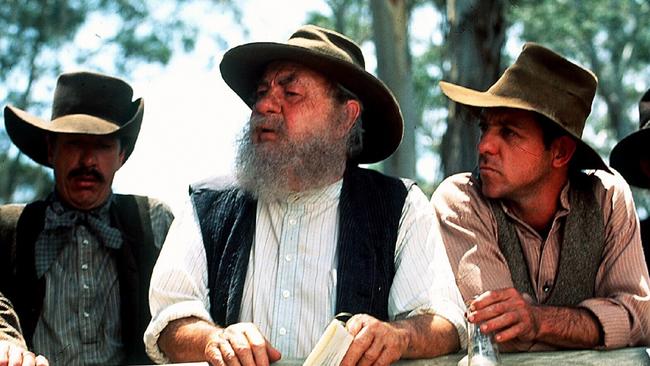
Today in History
Don't miss out on the headlines from Today in History. Followed categories will be added to My News.
IN the dedication from his first book, On Our Selection, in 1899, author Steele Rudd wrote a tribute to “You ‘Who Gave Our Country Birth;’ to the memory of You whose names, whose giant enterprise, whose deeds of fortitude and daring were never engraved on tablet or tombstone”.
He ends by saying to “You for whom few, in the march of settlement, in the turmoil of busy city life, now appear to care; and to you particularly, GOOD OLD DAD, This Book is most affectionately dedicated.”
Rudd was the nom de plume of Arthur Hoey Davis, and his dedication was a tribute to his father, his family and the farmers he knew growing up. It helped make his stories so warm and the humour so genuine.
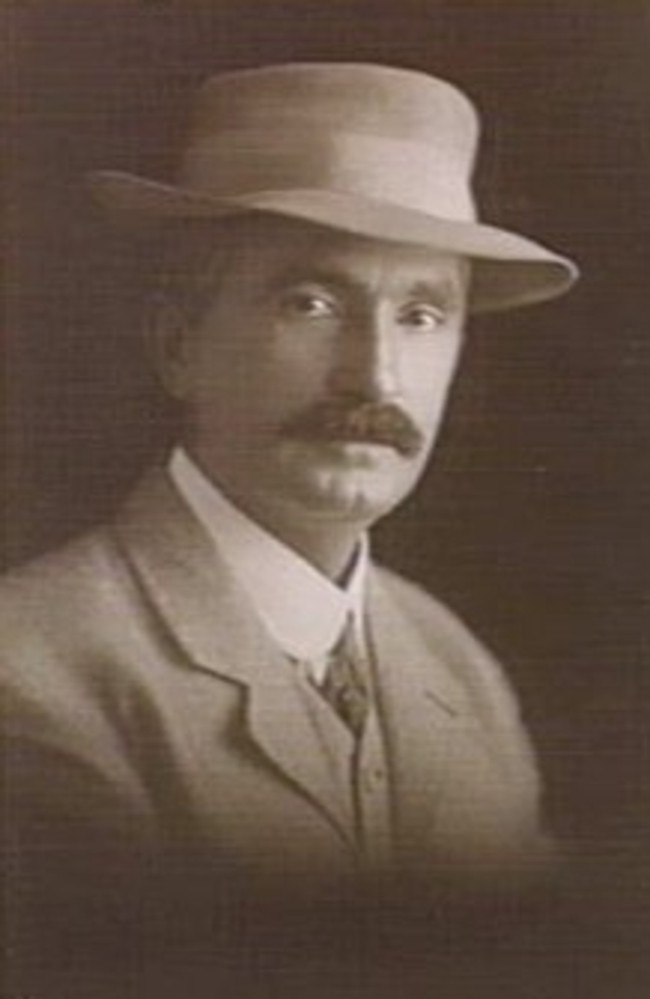
From the raw material of his own life Rudd created some of the most memorable characters in Australian literature, particularly Dad and Dave. As popular as his books were they didn’t make Rudd rich and his characters often became caricatures of the ones he created, yet they earned him a place in Australian cultural history.
Born at Drayton in Queensland on November 14, 1868, Arthur Hoey Davis was the eighth of 13 children to blacksmith Thomas Davis who had been transported for petty theft in the 1840s. Rudd’s mother, Mary, left Ireland during the famine.
In 1870 Thomas moved the family to a farm at Emu Creek (now East Greenmount) to a “free selection”, a small plot of land taken from a larger squatter’s property, which was purchased from the government for £1 an acre with strict conditions. Thomas named his selection Yalcalbah, an Aboriginal word for tall grass.
The life of a selector was hard. Most plots were too small to yield more than a subsistence existence. But while Rudd later wrote about the difficulties, his stories show great affection for life on the land.
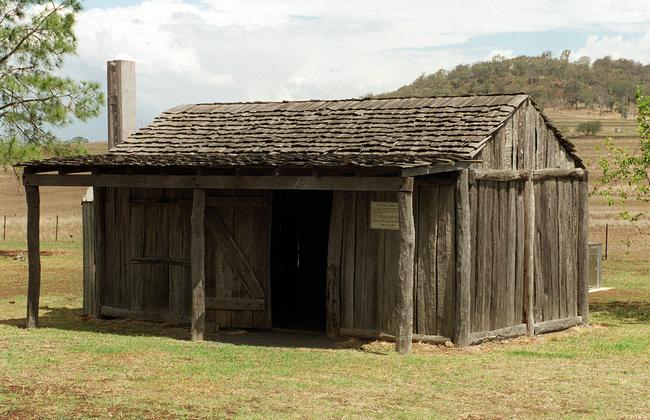
In 1875 he was sent to Emu Creek state school. A bright student, he later joked the schoolmaster told him he was “the smartest boy in the class — but I also remember being the only one in the class.”
He left at 12 to begin working as stockman, developing a love of horses and riding as a jockey in country races. But during the long boring stretches looking after livestock he read. His mother encouraged him to study and in 1885 secured her son work as a clerk in the office of the Curator of Intestate Estates in Brisbane. It was as dull as it sounds and Rudd later wrote about it in The Miserable Clerk.
Transferred to the Justice Department he worked on his penmanship, and taught himself shorthand, becoming secretary to commission investigating the Queensland National Bank in 1893. The following year he married Violet Christina Brodie and they had four children.
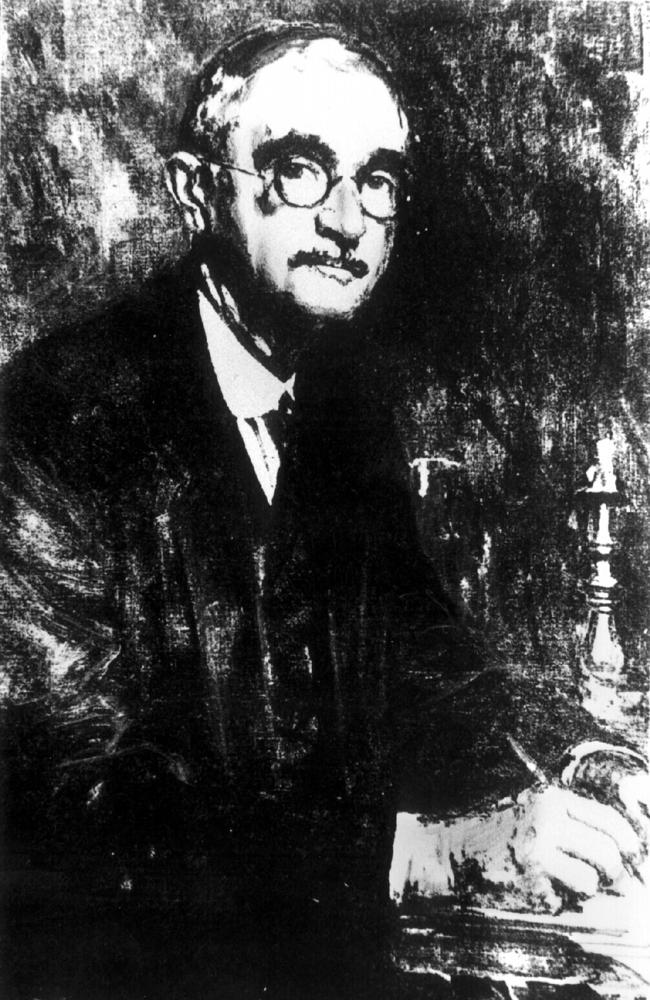
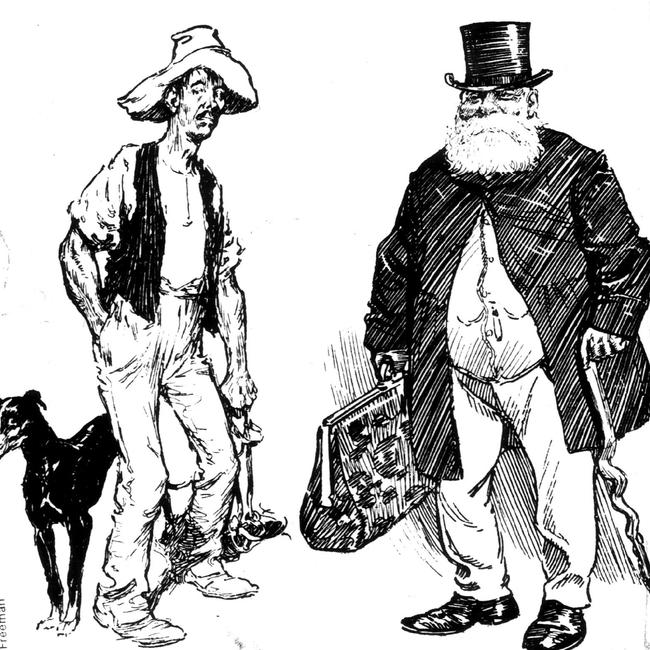
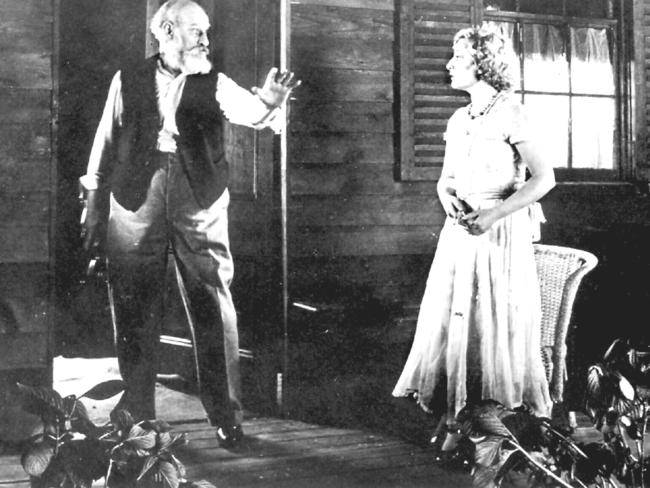
He joined a rowing club and in 1894 he started writing rowing articles for a paper, adopting the pen name Steele Rudder, which later became just Steele Rudd. In 1895 the Bulletin published his piece, Starting the Selection, a sketch about his father setting up his farm. He wrote regularly for the publication and in 1899 some of his stories were collected into the illustrated book On Our Selection.
It sold well but not enough for him to become a full-time writer. In 1902 he was promoted to the position of Under Sheriff of the Supreme Court of Queensland, but was deeply disturbed by having to give the signal for a hanging.
He published a sequel to his first book, Our New Selection, in 1903 but in 1904 he was retrenched. He focused his efforts on running a magazine and writing stories, but Rudd’s lack of a consistent wage caused Christina to suffer a nervous breakdown. Rudd moved his family to a property at Nobby near Toowoomba in 1909. Actor Bert Bailey bought rights to On Our Selection, producing and starring in the first stage version in 1912 to great success.
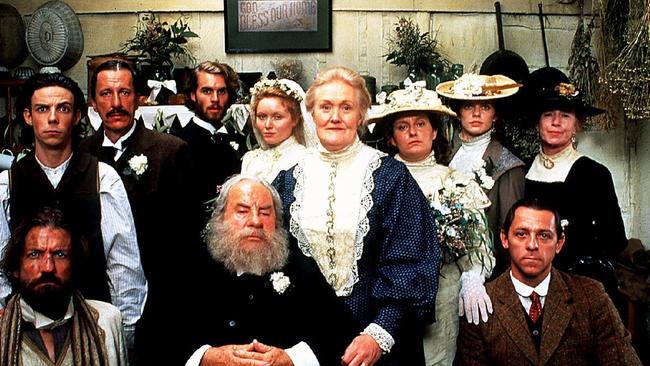
The death of their son during WWI in 1917 affected Christina’s health so they returned to Brisbane so she could be treated. Rudd revived his magazine in 1917, writing Memoirs of Corporal Keeley (1918), set during the war, and in 1922 saw the first film version of On Our Selection. Rudd tried more serious literature with his 1927 novel The Romance of Runnibede, but it was a failure as was the 1928 film version.
Suffering serious financial problems, in 1930 he was saved by a benefit and a Commonwealth Literary Fund pension. In 1931 he began living with Beatrice Sharp. After divorcing Christina in 1934 he and Sharp were engaged but never married.
He died of cancer in 1935.

